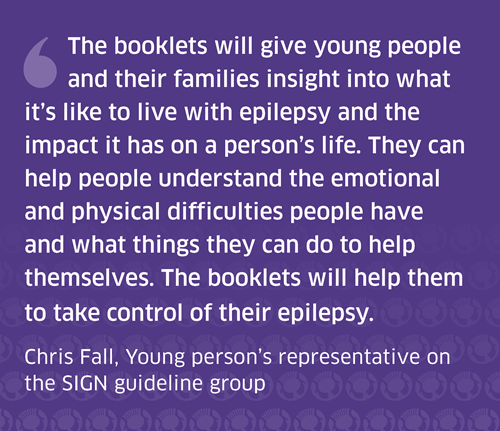Epilepsies in children and young people: Investigative procedures and management
Keeping up to date
Since this guideline was published the MHRA has issued revised regulatory measures regarding the prescribing of valproate:
- Valproate must not be started in new patients (male or female) younger than 55 years unless two specialists independently agree and document that there is no other effective and tolerated treatment.
- At their next annual specialist review, female patients of childbearing potential and girls should be reviewed using the latest valproate Risk Acknowledgement Form, which will include the need for a second signatory if the patient is to continue with valproate and further annual review.
Further information is available: Valproate: reminder of current Pregnancy Prevention Programme requirements; information on new safety measures to be introduced in the coming months - GOV.UK (www.gov.uk)
The guideline contains advice based on the NICE guideline: Epilepsies: diagnosis and management (CG137). In April 2022 NICE replaced their guidance with NG217: Epilepsies in children, young people and adults.
This guideline is scheduled for update in 2024 to take account of the new advice.
Summary
This guidance provides evidence-based recommendations on the investigation and management of epilepsies in children and young people aged from one month to 19 years (remaining in secondary education), including:
- the role of imaging, neurophysiology and genetic testing in diagnosis
- antiepileptic drugs, ketogenic diet, surgery and vagus nerve/deep brain stimulation in the management of patients with drug-resistant epilepsy and status epilepticus
- identification and treatment of psychiatric comorbidities
- transition from child to adult care
- discussions about, and prevention of, sudden unexpected death in epilepsy.
Who it's for
- All health and social care professionals involved in the management of children with epilepsy, in primary and secondary care settings
- people involved in commissioning epilepsy services
- public health physicians.
Young People's Experiences
Hear from our Young Person Representatives about their experiences of epilepsy services, and about how this guideline can help make improvements:

![]() Current 3-7 years
Current 3-7 years
Some recommendations may be out of date, declaration of interests governance may not be in line with current policy.

Supporting Material
- Declaration of interest (PDF)
- Search strategies (PDF)
- Search flow chart (PDF)
- Consultation Feb 19 Report (PDF)
- Consultation Nov 18 Report (PDF)
- The Psychology Adding Value – Epilepsy Screening (PAVES) and early intervention for children and young people with epilepsy at risk of mental health problems